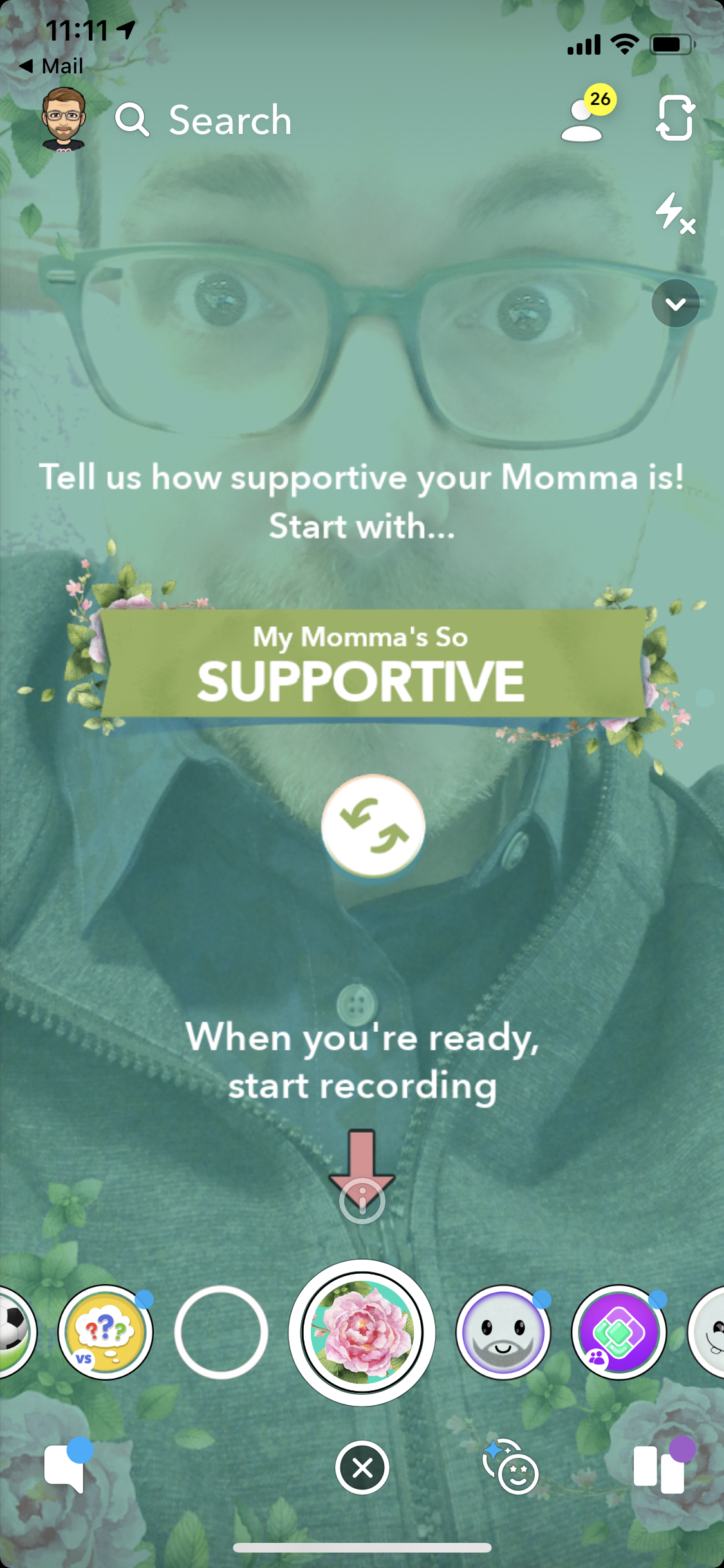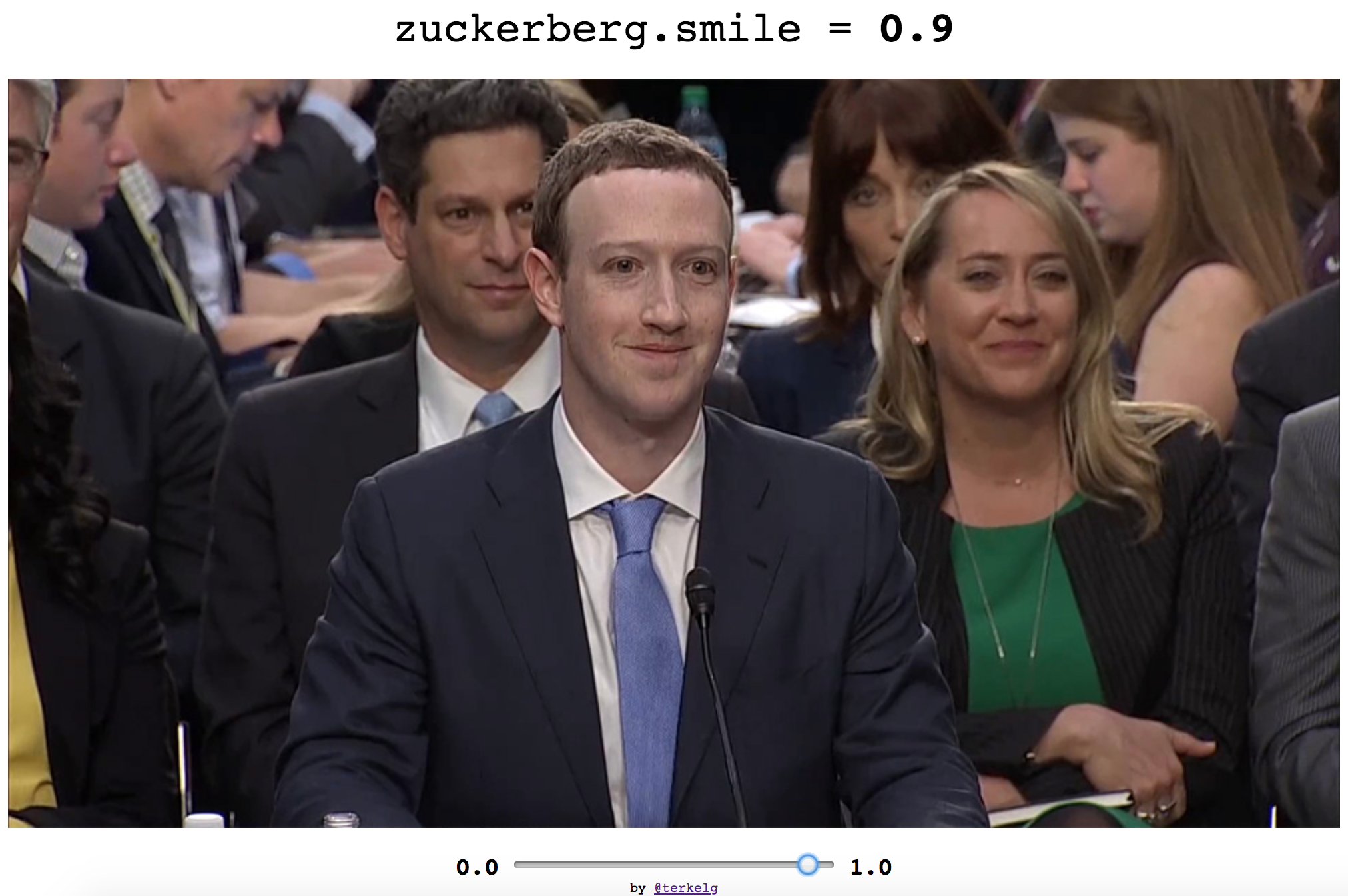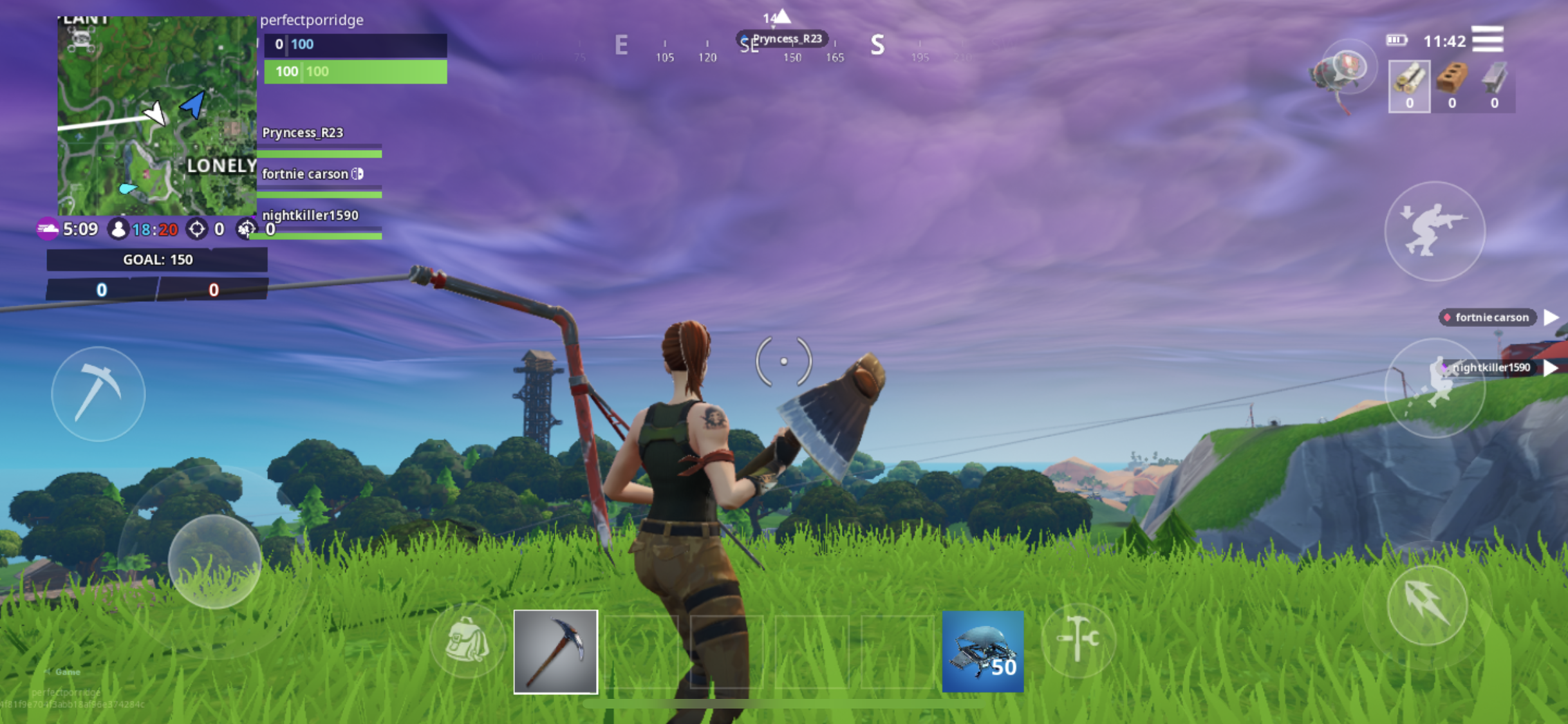Snapchat and Facebook Messenger are launching augmented reality camera effects for Mother’s Day. Facebook’s lens is live now, and on Sunday Snap will offer several Mother’s Day-themed AR Lenses, including a “My Momma” Lens Challenge, which provides users with text prompts for them to talk about how they feel about their moms. You can see it early by clicking this link.

This hilarious web tool lets you adjust Mark Zuckerberg’s smile, which only goes from 0.0 to 1.0.

Twitter is now letting users add images and GIFs to ‘quote tweets’ on iOS, Android, and mobile browsers. More info here.
Now you can stack GIFs on GIFs, like this!

The Center for Humane Technology surveyed people to find out how much screen time in apps left people feeling happy, and how much time left them in regret.
- Happy 22 mins per day on Facebook vs. Sad at 59 mins.
- Happy 12 mins per day on CandyCrush instead of Sad at 47 mins.
- Happy 29 mins per day on Reddit instead of Sad at 57 mins.
- Happy 26 mins per day on Instagram instead of Sad at 54 mins.

New app Hawkeye Access lets you control your iOS device using just your eyes. Browse any website, hands-free, all through eye movements. This early-stage tech innovation could help people with motor impairments browse the web and use apps. See a video of it in action here.
How do modern artists think about their work in our social media world? NPR has a four-minute feature on how sites like Instagram and YouTube are changing the way art is consumed, marketed and made.
Education Week writes about the new trend of high-achievers in High School starting to take Shop Class.
Key quote: “As a new breed of more academically inclined students flows into career-tech education, they could drive deep changes in those programs, and help erase the low-wage, blue-collar stigma that’s trailed them.”

Facebook co-founder Chris Hughes wrote a powerful Op-Ed in the NYT this week called “It’s Time to Break Up Facebook.”
The Daily has a 30 minute interview with Hughes where he explains his POV and recommendations.
And check out this key quote from The Verge’s Chris Hughes:
“It is worth noting once again how extraordinary it is to see so many early executives at a tech giant express such alarm about its consequences for the world. Certainly, employees of Google, Apple and Amazon have left and complained about specific aspects of those companies’ work. But no top executive there has left and called for them to be broken up – much less a whole parade of them.
Viewed in that light, Hughes’ specific arguments about breaking up Facebook are less significant than the new consensus that they reflect. As many Facebook co-founders now support radically changing the company as support maintaining the status quo. And anti-Facebook sentiment is now a mainstream view among the core of Facebook’s founding team.”

Okay Google. Show, Don’t Tell. Google’s I/O 2019 conference was this week, and the search giant is getting worldwide praise for their pivots into privacy and new products –on the heels of Facebook’s F8.
“Pichai didn’t have to rely on grand proclamations, cringey jokes, or imaginary product changes to get his message across. Privacy isn’t just a means to an end for Google. It’s not a PR strategy. And it’s not some theoretical part of tomorrow tomorrow [like FB]…”
Here’s a link to some of the coolest products introduced at I/O, including Google Duplex, Google Maps AR, Google Search AR, and some amazing innovations in Google Lens.

A new study called “Customer Service in the Age of Artificial Intelligence” found that even though many of us interact with chatbots each day, most people still prefer human interaction.
Only 1 in 4 respondents said they find chatbots to be more time efficient, and the other 25% of consumers said they find both to be equally time efficient.
However, Gen Z and millennial respondents were the most likely (30%) to report that they find chatbots to be more time efficient than human customer service agents. See the report here.

The stigma of being a Default. Fortnite’s virtual clothes have now become a status symbol, and schools are reporting a new wave of peer pressure to spend real world dollars to buy in-app gear beyond the standard avatar options.
My 12 year-old son says this isn’t really a bullying issue, and that’s it’s a meme adults don’t understand. Hmm…
Key quote:
“On more than one occasion I heard the kids refer to one another as a ‘default.’ At one point they started to use it just as a generic insult both in and out of the classroom.”
YOLO! Formspring was a Q&A-based social network in the 2010s that caught fire and subsequently flamed out after criticism about bullying and harassment from its members.
Here’s a Fox News interview Baby Greg did about Formspring in 2011.

But this essence of “Ask-Me-Anything from anonymous users” still has a lot of power in 2019.
That’s why it’s not a surprise that anonymous question-asking app YOLO has become #1 in the U.S. app store.
Friends can swipe up to open YOLO on iOS and send an anonymous question there that you then answer through another sticker posted to your Story. The terms indicate there is “No tolerance for objectionable content or abusive users,” but we’ll see how much longevity this new take on AMA’s truly has.

Pop your bubbles! Homophily refers to the tendency for people to have ties with people who are similar to themselves in socially significant ways.
It’s an ancient human instinct, and social networks’ algorithms are predicated on surrounding users with the types of people they already know and content they will like.
So to mix up your feeds a bit, The Atlantic points to a tool called Noisify that populates your Facebook search bar with random words to start popping your filter bubbles.
The Chrome extension nudges you to add noise to your “digital footprints” by searching for random interests and names. Try it out!






